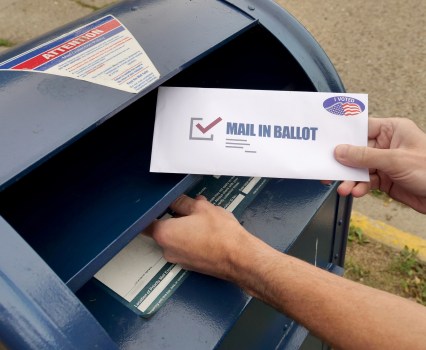
The U.S. Department of Health and Human Services authorized Illinois, Kentucky, Oregon, Utah and Vermont to provide Medicaid/Children’s Health Insurance Program (CHIP) coverage to those transitioning out of incarceration before they’re released, the agency announced last week. Several healthcare leaders are coming out in support of the agency’s move.
Through the Medicaid Reentry Section 1115 Demonstration Opportunity, states can cover certain services under Medicaid/CHIP up to 90 days before a person is released from jail, prison or a youth correctional facility. This includes substance-use disorder services. States can also connect those leaving incarceration to community-based Medicaid and CHIP providers. These five states join California, Massachusetts, Montana and Washington in providing coverage before release.
Currently, patients lose Medicaid benefits while they are incarcerated, and it usually takes about three to six weeks for coverage to be reinstated after they apply, according to Stephanie Strong, CEO of substance use disorder provider Boulder Care, which often supports those who are currently and formerly incarcerated. In addition, people with opioid use disorder “typically receive no or inadequate medical treatment for their condition while incarcerated,” she said. And the troubles only continue when they reenter communities.
“Upon release, folks are overwhelmed with finding housing, a job, reconnecting with the most important people in their lives, and staying healthy,” Strong said in an email. “Finding treatment and figuring out how to pay for it presents a serious burden: and studies show an escalated risk of overdose in this fragile period post-discharge by over 100x. If a medical provider is willing to see a patient and write their prescription for [medication assisted treatment] without insurance, often, the pharmacy won’t provide affordable medication without insurance to cover them.
“A seemingly small ‘gap’ in coverage quickly turns into a major roadblock, especially when six weeks without medication can have devastating consequences for a life-threatening condition like opioid use disorder,” she added.
Meghann Perry, founder of recovery support company The Meghann Perry Group, called HHS’ action a “logical step.” Perry has lived experience with substance use and incarceration.
“Providing continuous, quality mental health and substance use services to justice-involved community members is a critical factor in reducing recidivism and improving the overall wellbeing of our communities,” she told MedCity News. “It’s a key component in reducing the rate of overdose deaths and if nothing else, makes total sense fiscally. If I had not had the benefit of continuous services for my substance use and mental health challenges when I exited the criminal justice system, I’m not sure I would have survived my reentry. We need to see this coverage extended to all states and territories of the U.S. — and we needed this yesterday.”
Hans Morefield, CEO of CHESS Health, also applauded the action from HHS. The digital health company provides support for substance use disorder and offers a solution for community organizations working with those who are incarcerated, as well as a solution for those who are leaving incarceration.
“This decision should facilitate a smoother transition for individuals from prison treatment to community care, enhancing re-entry success, overdose prevention, and reducing recidivism rates,” he said.
Those who are incarcerated often have higher rates of substance use disorder, chronic physical health conditions and poor healthcare coordination. About 85% of people in prisons have an active substance use disorder or were incarcerated for a crime involving drugs, according to the National Institute on Drug Abuse.
“Expanding access to life-saving treatment and recovery supports for incarcerated people is a critical part of our bipartisan efforts to beat the overdose epidemic and save lives. … Under this important action today, the Biden-Harris Administration is providing a groundbreaking opportunity for these states to increase access to health care, including care for substance use disorder, in jails and prisons, and provide historically underserved and marginalized individuals with the tools and resources they need to succeed upon reentry,” said White House Office of National Drug Control Policy (ONDCP) Director Dr. Rahul Gupta in a statement.
CMS is working with several other states on Medicaid reentry section 1115 demonstration requests, according to the announcement.
Photo: designer491, Getty Images
#Health #Leaders #Applaud #HHS #Action #Giving #Incarcerated #Individuals #Medicaid #Coverage #Release










